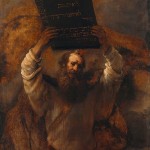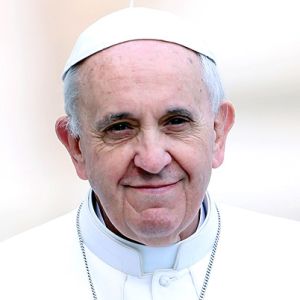“Wie gut und schön es ist Jesus zu sehen.” How good and wonderful it is to see Jesus.
 That was the message which Wilhelm Loehe hoped to convey to the Chippewa Indians living in the Saginaw Valley region of Michigan. Loehe was the pastor of a country church in Neuendettelsau, Mittelfranken, Kingdom of Bavaria. In the mid-1800s Loehe organized a Lutheran missionary society which is still operating today, and he began training teachers and pastors for work in the United States. In 1844, he determined to send a mission congregation to Michigan with a dual purpose: first, to give spiritual comfort and support to the German pioneers in the Midwest—particularly the Saginaw Valley, with its undulating hills reminiscent of Bavaria; and second, to reach the native Indians with the message of the Gospel.
That was the message which Wilhelm Loehe hoped to convey to the Chippewa Indians living in the Saginaw Valley region of Michigan. Loehe was the pastor of a country church in Neuendettelsau, Mittelfranken, Kingdom of Bavaria. In the mid-1800s Loehe organized a Lutheran missionary society which is still operating today, and he began training teachers and pastors for work in the United States. In 1844, he determined to send a mission congregation to Michigan with a dual purpose: first, to give spiritual comfort and support to the German pioneers in the Midwest—particularly the Saginaw Valley, with its undulating hills reminiscent of Bavaria; and second, to reach the native Indians with the message of the Gospel.
 So was born the city of Frankenmuth, founded by fifteen zealous Lutheran colonists. In 1846 another 90 German emigrants journeyed to Frankenmuth, where they cleared trees, developed a town and a school, and built St. Lorenz church.
So was born the city of Frankenmuth, founded by fifteen zealous Lutheran colonists. In 1846 another 90 German emigrants journeyed to Frankenmuth, where they cleared trees, developed a town and a school, and built St. Lorenz church.
* * * * *
Today Frankenmuth, Michigan’s “Little Bavaria,” is a quaint tourist destination—attracting shoppers who wander along Main Street in search of homemade sausage and cheese, or queue up for the bountiful family-style chicken dinners at Zehnder’s or the Bavarian Inn. One of the most popular stops in the historic German settlement is Bronner’s Christmas Wonderland, a 67-year-old family business which has earned acclaim as the world’s largest Christmas store.
 And just up the road from Bronner’s, clearly visible from the parking lot and from M-83, is Cross Park, site of the city’s Bicentennial Cross. There, the 55-foot-high white cross stands in tribute to the city’s founders and its strong Christian heritage. The Bicentennial Cross was developed as the City’s monument during the Bicentennial year, 1976, with private funds raised by the Frankenmuth Area Bicentennial Commission.
And just up the road from Bronner’s, clearly visible from the parking lot and from M-83, is Cross Park, site of the city’s Bicentennial Cross. There, the 55-foot-high white cross stands in tribute to the city’s founders and its strong Christian heritage. The Bicentennial Cross was developed as the City’s monument during the Bicentennial year, 1976, with private funds raised by the Frankenmuth Area Bicentennial Commission.
 This summer, as has happened in cities across America, the city of Frankenmuth received a letter of complaint about their religious symbol. The Washington D.C.-based Americans United for the Separation of Church and State warned that the Bicentennial Cross, which is situated on city-owned property, is in violation of the Establishment Clause of the First Amendment, since it would seem to endorse and promote a particular religion. The city must, Americans United warned, either take down the cross or move it to private property. Failure to do so would result in “a significant risk of litigation.”
This summer, as has happened in cities across America, the city of Frankenmuth received a letter of complaint about their religious symbol. The Washington D.C.-based Americans United for the Separation of Church and State warned that the Bicentennial Cross, which is situated on city-owned property, is in violation of the Establishment Clause of the First Amendment, since it would seem to endorse and promote a particular religion. The city must, Americans United warned, either take down the cross or move it to private property. Failure to do so would result in “a significant risk of litigation.”
But the citizens and the government officials of Frankenmuth did not capitulate to the atheist organization from out of town. Instead, they called on the Thomas More Law Center, a national non-profit public interest law firm based in Ann Arbor, Michigan, to defend their Cross.
On October 5, 2012, Richard Thompson, President and Chief Counsel of the Law Center, in a letter to Americans United responded on behalf of the City, “The cross was raised up by a grateful community. And this community will fight to keep it.”
Thompson explained that the purpose of the cross was not to promote, endorse or coerce anyone to convert to Christianity. In a press release explaining the Law Center’s case, Thompson writes:
The Cross was erected as a part of Frankenmuth’s celebrations of the American Revolution Bicentennial 1776-1976. It was constructed and erected with private funds raised by the Frankenmuth Area Bicentennial Commission. The Cross was erected not only to memorialize the sacrifices made by our Founding Fathers in 1776, but also to memorialize Frankenmuth’s unique history and the sacrifices made by the original 15 settlers who arrived in the Frankenmuth area in1845. These settlers left their homes in the province of Middle Franconia, Bavaria to establish a religious community for the conversion of the Chippewa Indians who lived in the area.
The full four-page letter to Americans United can be viewed at the Thomas More Law Center’s website.
Frankenmuth City Manager Charles B. Graham confirmed that as of October 19, no response has been received from Americans United to the Law Center’s letter. Graham hoped that the matter would simply end at this point; but he assured me that the city is ready, with the partnership of the Thomas More Law Center, to defend itself in the event that Americans United for the Separation of Church and State should decide to move forward with its threat to sue.
* * * * *
 The Americans United complaint is actually not the first complaint from secularists; in 2008 a local resident, Lloyd C. Clarke, asked the city to remove two crosses on a public bridge, calling the crosses a violation of the separation of church and state. In that, on the advice of the city attorney, city officials removed the crosses on the bridge.
The Americans United complaint is actually not the first complaint from secularists; in 2008 a local resident, Lloyd C. Clarke, asked the city to remove two crosses on a public bridge, calling the crosses a violation of the separation of church and state. In that, on the advice of the city attorney, city officials removed the crosses on the bridge.
However, when Clarke returned in April 2008 demanding that the city now remove the cross from its official crest, the city stood firm, insisting that it had historical significance. (The Frankenmuth crest includes a shock of grain, an eagle, a white-blue Harlequin pattern reflective of the Bavarian coat-of-arms and a cross inset in a heart, the symbol at the center of the Luther Rose, the icon of Lutheranism.)
Chris Enge, an adjunct instructor of law at Saginaw Valley State University, reported that many states have flags and crests with religious symbols such as crosses, and that courts have ruled those symbols are of historical significance, rather than implying religious endorsement.
 And a grassroots effort was mounted by St. Lorenz Lutheran Church, which distributed nearly 1,000 three-foot crosses in response to Clarke’s request to remove the cross from the crest. City residents displayed the crosses proudly on their lawns; and after a month, Clarke withdrew his request, saying that he hadn’t realized it would cause such an uproar. He said,
And a grassroots effort was mounted by St. Lorenz Lutheran Church, which distributed nearly 1,000 three-foot crosses in response to Clarke’s request to remove the cross from the crest. City residents displayed the crosses proudly on their lawns; and after a month, Clarke withdrew his request, saying that he hadn’t realized it would cause such an uproar. He said,
“Although I think the city’s endorsement of a religion is a violation of the separation of church and state, I regret that my actions have caused such an uproar. I didn’t mean for it to be this disruptive. Going into this, I was just thinking there was something inappropriate that I’d like to see corrected.”
Clarke has since left the community.















